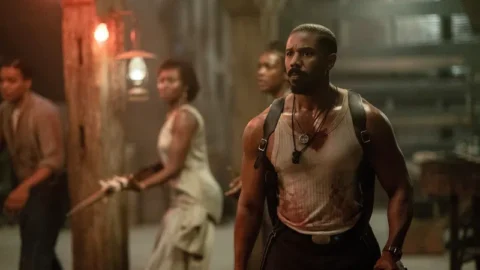Nigerian music executive Soso Soberekon has shared a remarkable story about how Grammy-winning superstar Beyoncé almost made an appearance on KCee’s 2013 hit song, Limpopo.
Though the collaboration never materialized, the song became an instant sensation, solidifying KCee’s place in the Nigerian music industry. In a recent interview with media personality Daddy Freeze, Soso, a former producer and close associate of KCee, detailed the behind-the-scenes efforts that nearly brought one of the biggest international music icons onto a Nigerian track.
He described the series of negotiations, the excitement that surrounded the possibility, and the eventual heartbreak when it all fell apart. According to him, the dream of featuring Beyoncé was not just a random ambition but a carefully orchestrated plan backed by a wealthy businessman who was determined to bring the American singer to Nigeria.
Recalling how it all began, Soso explained that the billionaire—whose name he did not disclose—had no prior experience in the entertainment industry but was enthusiastic about making a major impact. “There was this billionaire who wanted to bring Beyoncé to Nigeria,” Soso revealed.
“He didn’t really know anything about music, but he was willing to spend whatever it took to make it happen. He asked us to travel with him to New York, assuring us that a deal had already been set in motion and that we were going to record a song with Beyoncé after negotiations.”
The team, eager and optimistic, embarked on the journey, hoping to secure what would have been a historic collaboration in Nigerian music. Their first stop was Jay-Z’s club, where they began seeking out industry connections that could help them reach Beyoncé’s camp. After several inquiries and relentless effort, they eventually made contact with an agent who could facilitate the deal.
The negotiations, according to Soso, were more elaborate than they had initially anticipated. “The arrangement wasn’t just about the song,” he explained. “Beyoncé was supposed to come to Nigeria for a concert, a meet-and-greet session, and then record a track with KCee. That was the full package. The agent assured us that they would get back to us after discussing our proposal.”
With that assurance, the team returned to Nigeria, filled with excitement and anticipation. However, the waiting period came with a sense of urgency. The team was advised to prepare a song that Beyoncé could easily feature on once the deal was finalized. This directive led to the birth of Limpopo.
“So, we came back, and the man told us to record a song that Beyoncé would jump on,” Soso recounted. “In our minds, we were creating a track for a collaboration with her, and that’s how Limpopo was made. We had no idea at the time that the song would turn out to be a massive hit on its own.”
Despite their best efforts, things soon took an unexpected turn. After weeks of hopeful anticipation, the team finally received feedback from Beyoncé’s camp—but it wasn’t the news they had been hoping for. Soso recalled the moment their dreams were crushed.
“One day, we got a call from the agent,” he said. “And just like that, he told us that Beyoncé wouldn’t be coming to Nigeria. He explained that if she were to travel to West Africa, she would stay in Ghana instead of Nigeria. That was a major blow because the whole deal revolved around her coming to Nigeria. The concert was the main thing, and the song feature was more of a bonus. So, with her not coming to Nigeria, everything just collapsed.”
The billionaire backer, who had been funding the negotiations, was left with no choice but to abandon the project, leaving KCee and his team with nothing but the song they had created in preparation for the feature.
At that point, it seemed as though all the effort had gone to waste, but rather than scrap the track, the team decided to move forward with the release of Limpopo as it was. They had invested too much time and energy into the song to let it sit on the shelf, and since they already believed in its potential, they were determined to see it through.
“We didn’t dwell too long on the disappointment,” Soso recalled. “We had recorded the song with the mindset that it would feature Beyoncé, but even without her, we knew it was a strong track. So, we decided to release it anyway.”
What happened next was beyond their expectations. The song took on a life of its own, dominating the airwaves, topping charts, and becoming one of the biggest Nigerian hits of that era.
Looking back, Soso admitted that while the missed opportunity was painful at the time, it ultimately didn’t stop Limpopo from achieving legendary status. The song became a defining moment in KCee’s career, proving that even without an international feature, Nigerian music had the power to stand on its own.
“Sometimes, things don’t go the way you plan, but that doesn’t mean they won’t work out for the best,” Soso reflected. “We thought we needed Beyoncé to make the song a hit, but Limpopo showed us that a great song will shine regardless.” The story of Limpopo serves as a reminder of how the Nigerian music industry continues to thrive on talent, persistence, and resilience—even when major collaborations don’t come to fruition.









